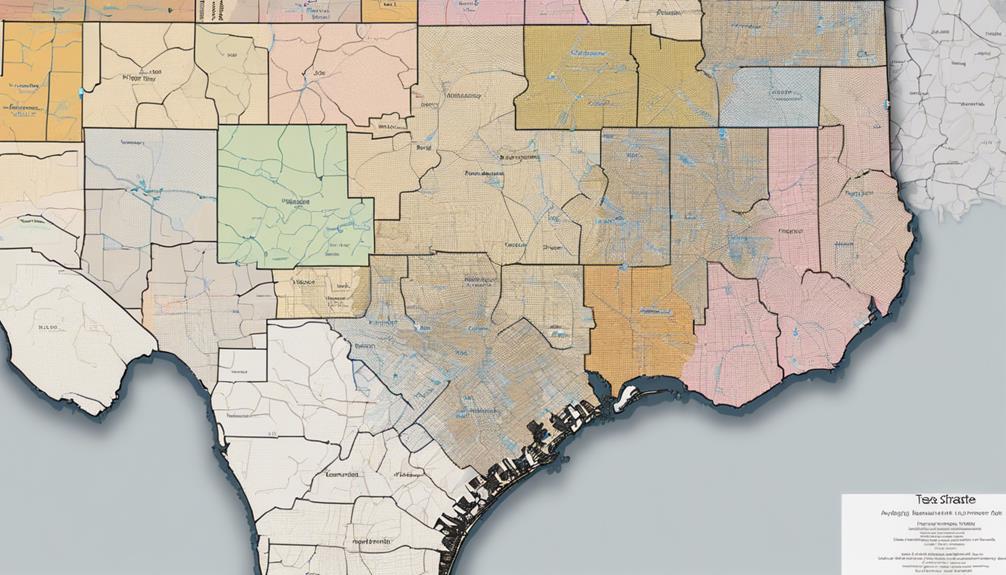When researching how to get a divorce in Iowa for free, it may be surprising to learn that the necessary steps are simpler than anticipated. Understanding the intricate details of Iowa’s divorce laws is just the beginning.
As we explore the essential steps to navigate this process effectively, you'll discover key insights that can simplify your journey towards a cost-effective divorce.
Key Takeaways
- Understand Iowa residency and waiting period requirements.
- Complete and file divorce paperwork accurately.
- Craft a comprehensive settlement agreement for fair outcomes.
- Attend court appearances for finalizing the divorce process.
Residency and Waiting Period
Understanding the residency and waiting period requirements is crucial when preparing to file for divorce in Iowa.
In Iowa, the residency requirement stipulates that the petitioner must have lived in the state for a continuous year before filing for divorce. If the respondent isn't an Iowa resident, the petitioner must meet this one-year residency requirement before initiating the divorce process.
Additionally, Iowa law mandates a 90-day waiting period after the divorce papers have been served before a final divorce judgment can be granted. It's important to note that certain circumstances may allow for the waiver of the waiting period in Iowa divorce cases.
To navigate the complexities of the divorce process effectively, having a clear understanding of these requirements is essential. By being informed about the residency requirement and the waiting period, individuals can ensure that they meet all criteria necessary for a successful divorce filing in Iowa.
Filing Divorce Paperwork

Navigating through the residency and waiting period requirements successfully, we can now move forward to the essential step of filing the divorce paperwork in Iowa. To begin, obtain the necessary forms from the Iowa Courts website. These forms are crucial to initiating the legal process of divorce. It's essential to complete all paperwork accurately to ensure a smooth filing process. Make sure to include all required forms, such as the Petition and Cover sheet, and be aware of the specific forms needed for divorces involving children or minors.
Before filing, double-check all information to avoid any delays or errors. If you have any uncertainties or questions regarding the forms, don't hesitate to reach out to resources like Iowa Legal Aid for guidance. If needed, consider consulting with an attorney to ensure the correct paperwork is filed. Filing for divorce marks a significant step in the legal dissolution of a marriage, so it's crucial to approach this process diligently and attentively.
Settlement Agreement
Crafting a fair and comprehensive settlement agreement is crucial for both parties involved in an Iowa divorce. It outlines important terms concerning property division, support, and custody arrangements. The settlement agreement is a pivotal document that addresses key aspects such as alimony, child support, custody, and visitation rights.
It serves as a roadmap for the fair and reasonable distribution of assets, financial support, and parenting plans post-divorce. Ensuring that the agreement caters to the needs of both spouses and any children involved is paramount.
Detailing how property will be divided, the amount and duration of alimony, the specifics of child support, custody arrangements, and visitation schedules are essential components of a well-crafted settlement agreement. Working collaboratively with professionals like mediators or attorneys can help navigate the complexities of drafting an enforceable document that safeguards the interests of all parties in an Iowa divorce.
Court Appearance Requirements

As we move from discussing the importance of a comprehensive settlement agreement in an Iowa divorce, it's essential to address the mandatory court appearance requirements that apply to all divorce cases in the state, regardless of their contested or uncontested nature.
In Iowa, court appearance is a necessary step in finalizing the divorce process. Even in uncontested cases, both parties must appear in court for the divorce to be approved. While in certain circumstances, the court may allow for remote appearances for convenience, it's crucial to follow Iowa court guidelines and procedures for appearances.
Court appearances are particularly significant for the approval of parenting plans and the resolution of any contested issues that may arise during the divorce proceedings. By understanding and complying with the court appearance requirements, couples can navigate the divorce process in Iowa smoothly and efficiently.
Final Decree of Divorce
Understanding the Final Decree of Divorce is crucial for both parties as it serves as the official document that legally terminates the marriage in Iowa. This document isn't just a formality but a detailed record of agreements regarding property division, child custody, visitation rights, and spousal support agreements.
The Final Decree, once signed by the judge, becomes a binding court order, outlining the rights and responsibilities of each party moving forward. It includes crucial information about financial obligations and parenting arrangements post-divorce. Both parties must thoroughly review the Final Decree of Divorce to ensure that they understand and comply with the court's orders.
Frequently Asked Questions
How to Get a Divorce in Iowa for Free?
Getting a divorce in Iowa for free is possible through fee waivers for financial need. Uncontested divorces are cost-effective. DIY methods or online services can help. Pro bono legal aid may also be available for assistance without fees.
What Is the Cheapest Way to Get Divorce in Iowa?
Getting a divorce in Iowa on a budget? We've got you covered! Consider uncontested divorce, DIY methods, or online services for a cost-effective solution. Pro bono legal aid may also be an option.
What Steps to Take Before Asking for a Divorce?
Before asking for a divorce, we should understand residency requirements, gather financial info, consider mediation, seek legal aid, and learn about grounds for divorce. Taking these steps can help us navigate the process effectively.
Can You Get a Divorce Without the Other Person Signing in Iowa?
Yes, we can get a divorce in Iowa without the other person signing if they fail to respond. The process can move forward uncontested. The court may grant the divorce based on the petitioner's testimony and evidence, or through service by publication if needed.
Conclusion
In the journey of divorce, navigating Iowa's legal landscape can feel like sailing uncharted waters. But with patience, perseverance, and the right guidance, you can weather the storm and reach the shores of a new beginning.
Remember, just like a ship needs a steady hand at the helm, you too can steer your way through this process with confidence and strength. Stay resilient, and soon you'll find yourself on the other side, ready to embrace a brighter future.











